CSotD: Document Drift
Skip to comments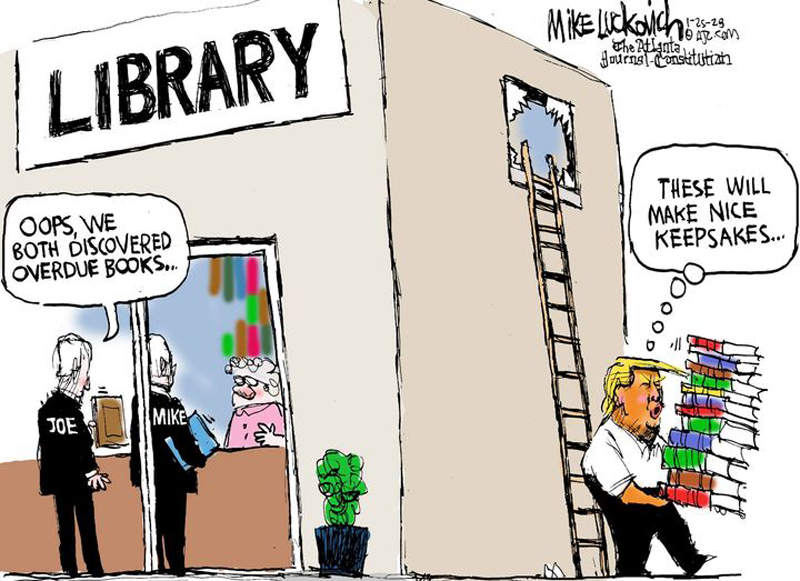
Mike Luckovich becomes one of the first cartoonists to add Mike Pence to the list of administration officials who have purloined classified documents.
I use the word “purloined” because it has something of a vague definition. It still means to steal, but is more along the lines of “pilfer” and thus can fall more in the realm of incidental rather than intentional theft … acquiring something you aren’t supposed to have, but without an accusation of purposeful stealing.
The overdue library book metaphor Luckovich employs is good, though I prefer one that has been floating around social media, of someone walking out of a store and realizing they’ve got something they forgot to pay for, then going back and making it good. This is offered in contrast with the person who deliberately shoplifts an item.
I wish we knew how Donald Trump brought a few hundred government documents he was not supposed to have from the White House to Mar A Lago.
I rather doubt that he, or Biden, or Pence, packed up their offices themselves, and I’m inclined to suspect that the reason Biden and Pence are only recently discovering these documents is because they were scattered among a lot of other papers that it was appropriate for them to have, but which they would never have looked at until it was time to start writing their memoirs.
I’m further inclined to think that the difference in scale is a reflection of personal style, particularly since we knew throughout the Trump administration about how carelessly he treated documents.
We had numerous reports of him tearing up papers after reading them, with his staff taping them back together in compliance with the law on presidential documents. We also had reports of him flushing the pieces down the toilet or even eating them, as well as stories of his staff sneaking dubious documents off his desk before he could sign them, knowing he was too absent-minded to recall that he had ordered them drawn up.
That alone could readily explain why, when staff was gathering up papers and putting them into banker boxes, his quantity of unauthorized documents would outstrip those of a better organized Joe Biden or Mike Pence, and it makes Luckovich’s suggestion of intentional theft problematic.
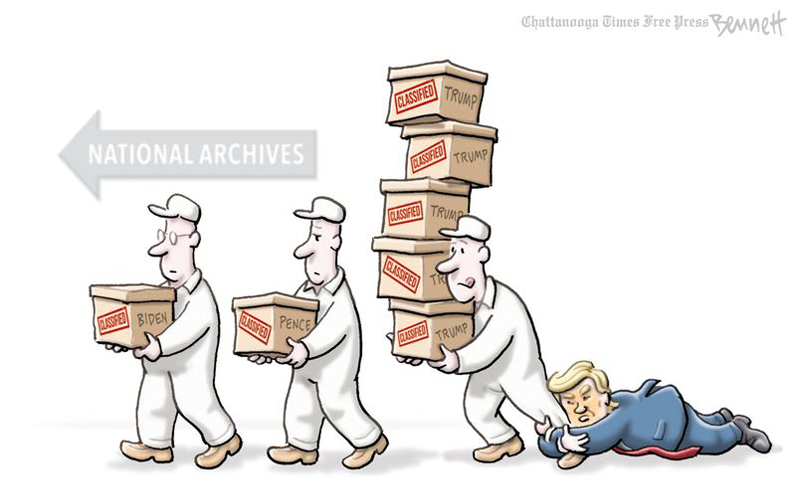
However, Clay Bennett (CTFP) makes a more pointed observation on the difference alluded to in Luckovich’s cartoon: Without speculating on intent — which we don’t know — Bennett focuses on both quantity and on response, which we do know.
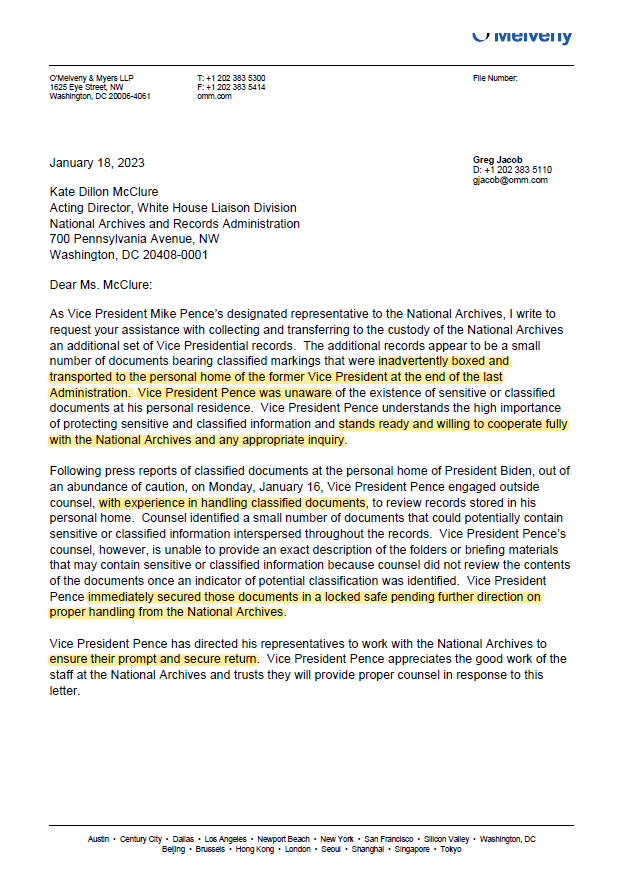
Biden and Pence had small quantities of inappropriate documents, which they reported and arranged to return, with this letter from Pence’s attorney a model of how such matters should be handled. I don’t much agree with Mike Pence on policies and viewpoints, but this is an indication of the organizational benefit of having a tight-ass in the position.
One can wish, by contrast, that Biden appeared less loosey-goosey in his response, though, in the end, he also reported the matter, invited the proper return and went along with a more thorough search of his home by DOJ investigators.
Not that you’d know it from the response of several cartoonists.
Juxtaposition of the Day
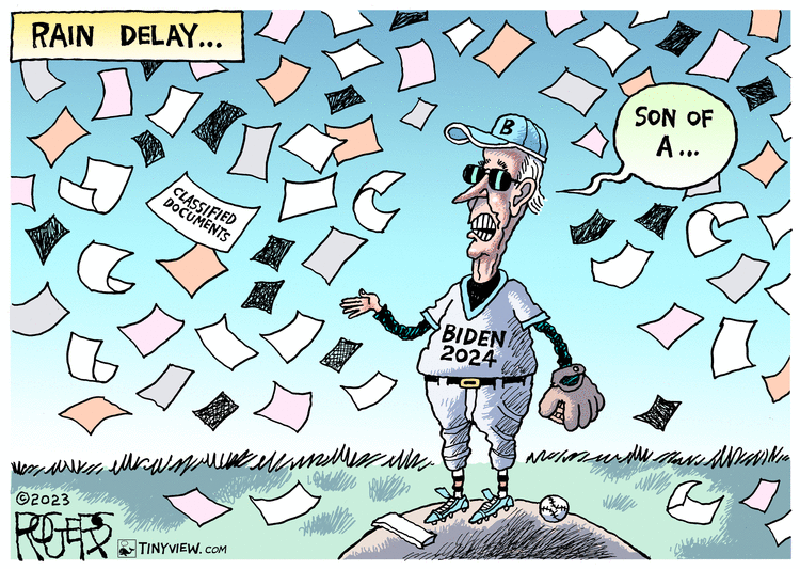
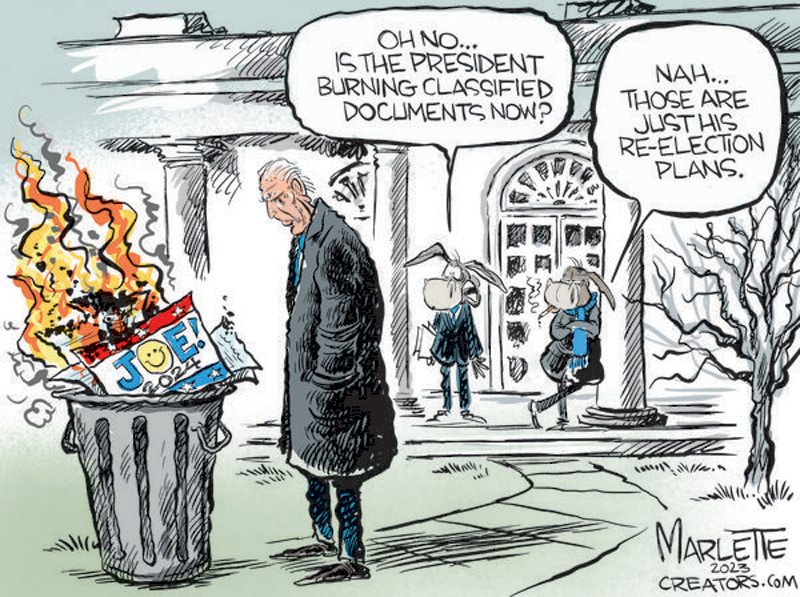
Rogers has been shown to be no Trump fan, but he joins several other progressives in overstating the quantity of documents that turned up in Biden’s home and office, while Marlette adds to the chorus of liberal cartoonists who have been explaining — in what they could make a self-fulfilling prophecy — that these documents have doomed Biden’s chances of re-election.
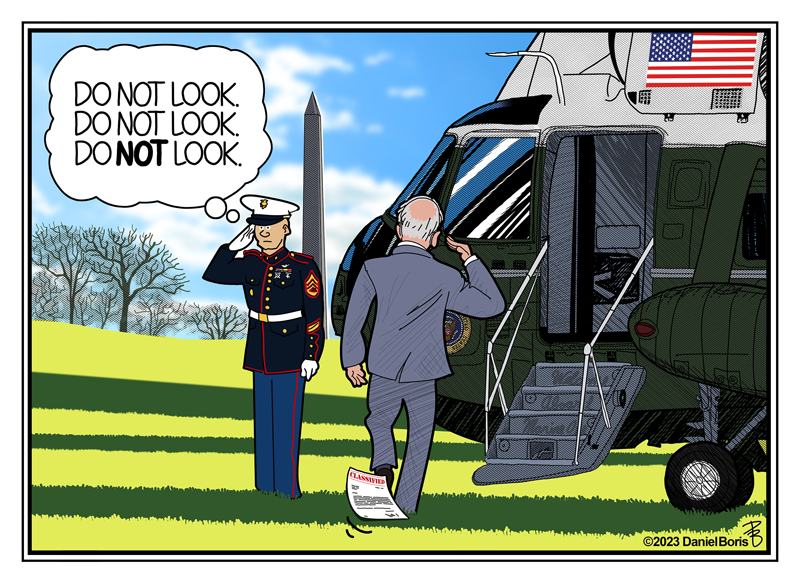
Meanwhile, Daniel Boris joins a list of cartoonists who have picked up on the image of toilet paper stuck to the shoe, some of whom have used toilet paper, others depicting documents.
The overall analogy is an addition to the common accusation that Biden is old and incompetent, but this is the first cartoon I’ve seen that accuses his staff of having greater loyalty to the man than to the country, and of violating their oaths in order to protect the chief.
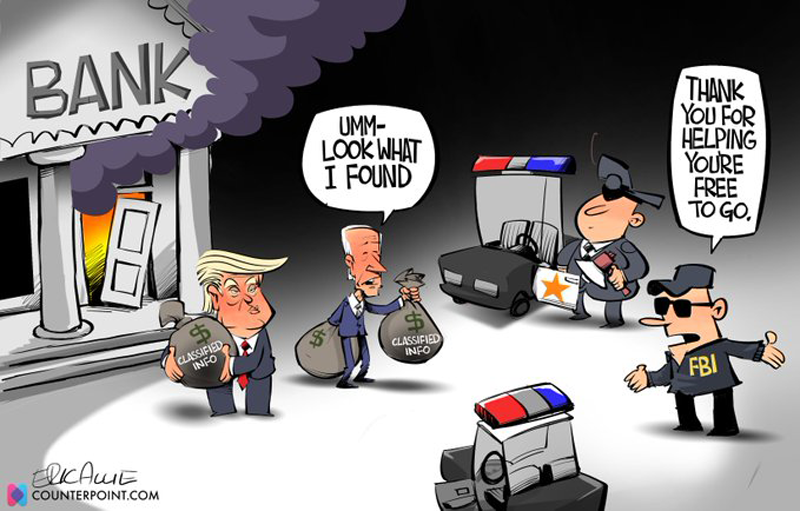
It may be surprising to see nominally progressive cartoonists attacking Biden. It’s less shocking to see Eric Allie (Counterpoint), an inveterate foe of liberals, showing Biden toting twice as much stolen lucre as Trump.
Even if the intent is that both men are being let off the hook, the comparative quantities he cites is far out of balance with any credible reports.
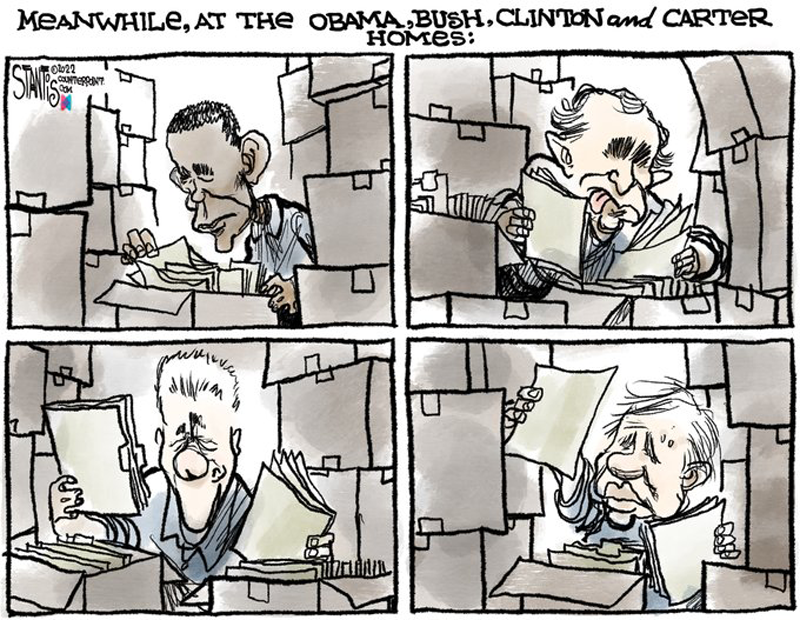
This Scott Stantis (Counterpoint) cartoon makes a repeat appearance, because, in the week since it was first used here, there have been many suggestions that searching any former president or vp’s archives would turn up things that oughtn’t to be there.
While I understand the appointment of special counsels in the Biden and Trump situations, and assume we’ll see one if Pence formally announces his candidacy for the White House, it would be good to know whether DOJ plans a wider, more pro-active search, and even better to have some of these former officials step forward and request it.
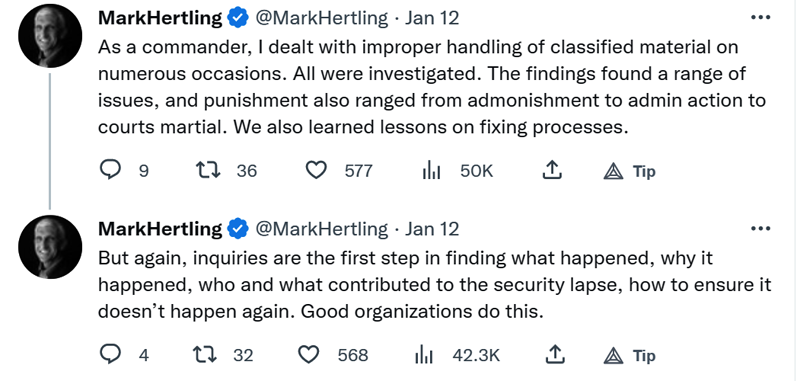
Meanwhile, former General Mark Hertling, who was commander of our troops in Europe among holding other high offices, explained frankly that mishandling of classified material is hardly confined to the White House.
Note that he doesn’t blow it off as inconsequential, but, rather, admits that it happens relatively often and needs to be addressed seriously in each case.
There is a conversation springing up that says we are too eager to classify documents, and we should note that some of the classified documents on Hillary Clinton’s computer were not yet classified when they were put there. Besides the mass of things that may be unnecessarily classified, there is also the potential for an ex post facto declaration of, “Oh, wait: You weren’t supposed to see that!”
To which I would add that those calling for tighter control of documents might want to review the practices already in place and then ask themselves if adding more employees would result in a balance of cost and benefits.
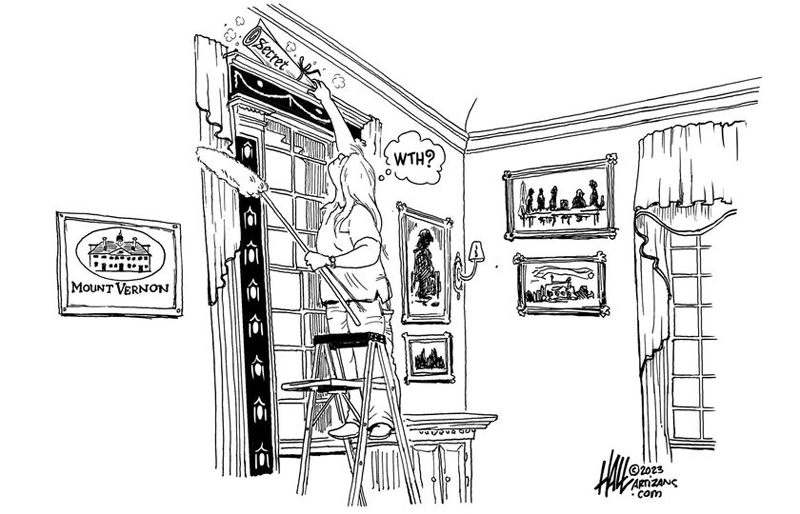
Ed Hall adds a humorous suggestion of the futility of attempting to track down and segregate every piece of secret information.
Fact is, this is nothing new. Washington had a network of spies collecting secret information, as documented in that fascinating link.
It’s lovely to think of a world in which good guys don’t need secrets, but it’s not the one we live in.
We do what we can, and hope that we’re doing what we should.
Always have.


Comments 4
Comments are closed.